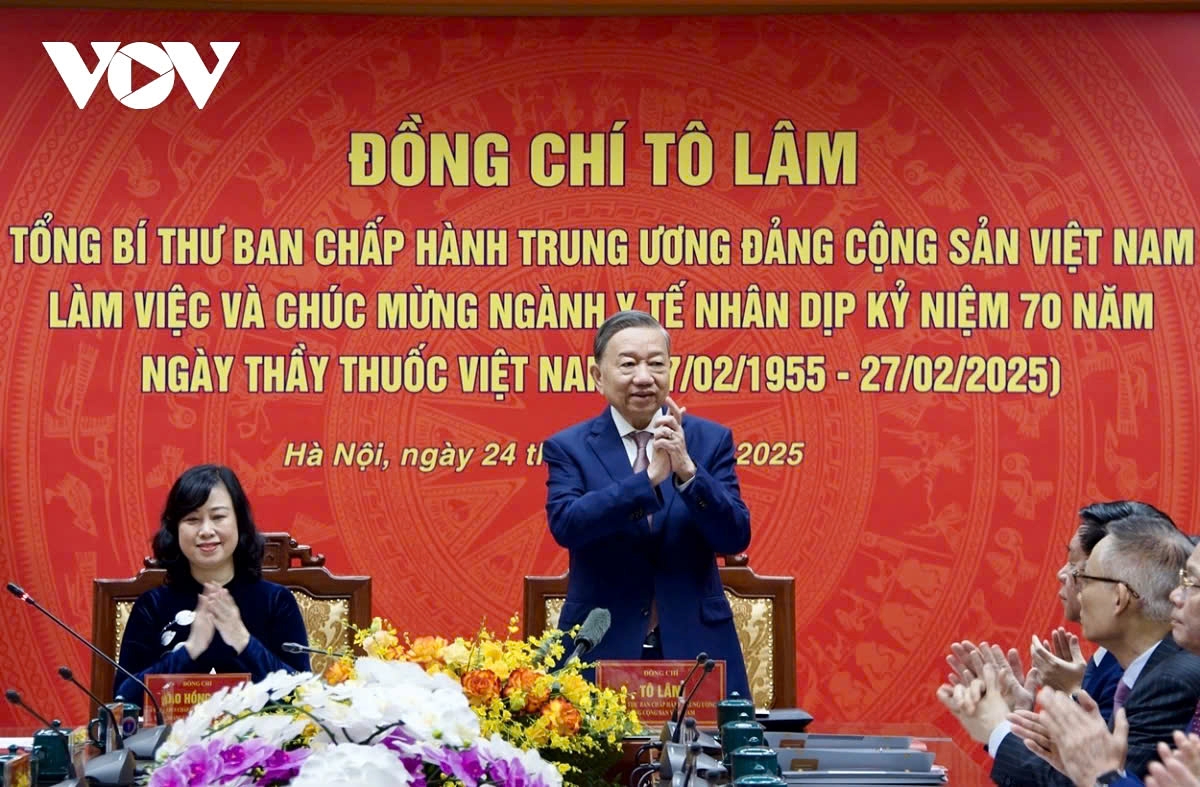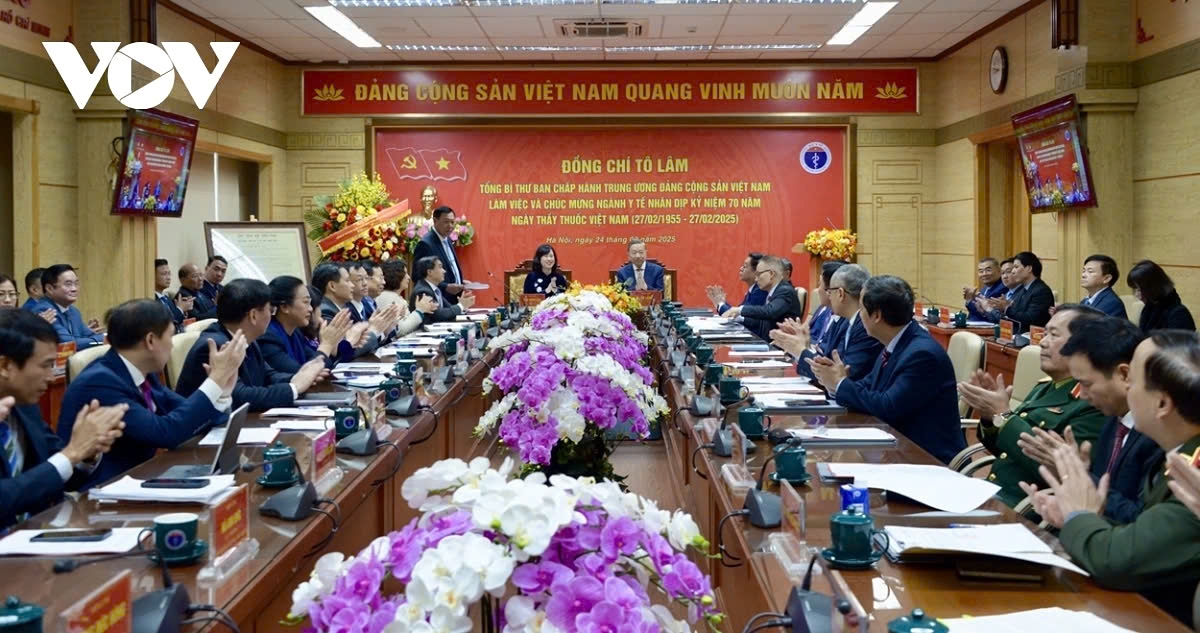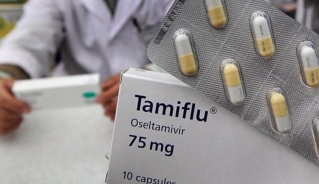Party leader requests effective healthcare reform to improve service quality
VOV.VN - Party General Secretary To Lam analyzed major challenges facing the healthcare sector and outlined the requirements for its development in the new context, with a primary focus on healthcare reforms, during a meeting with the leadership of the Ministry of Health in Hanoi on February 24.

In his opening remarks, To Lam acknowledged that the healthcare sector has made significant breakthroughs in recent decades, by improving treatment quality, applying advanced technologies, and modernizing medicine. Centrally-run hospitals such as Viet Duc, Bach Mai, Cho Ray, Hue, and Military Hospital 108 have successfully mastered advanced medical techniques, performing complex organ transplants that have saved the lives of many critically ill patients.
The sector has also contributed significantly to increasing life expectancy and improving the quality of life for citizens. The average life expectancy in Vietnam has steadily risen, from approximately 38 years in 1945 to 60 years during 1975–1980 and currently reaching an average of 74.5 years.
Alongside healthcare system development, training and improving the quality of medical personnel have been prioritized, resulting in a team of doctors and medical experts who meet international standards.
Challenges facing the healthcare sector
However, the General Secretary also pointed out major challenges that require comprehensive reforms to ensure public healthcare tasks in the new era.
According to him, one of the greatest challenges is fulfilling the mission of providing healthcare services, ensuring a high-quality medical workforce, and promoting a healthy and happy life for all citizens.
He emphasized that health care should not only focus on diagnoses and treatment of diseases but also on disease prevention. Although Vietnam has a preventive healthcare system, its effectiveness is yet to live up to expectations. The COVID-19 pandemic and other subsequent outbreaks have exposed weaknesses in Vietnam’s disease prevention and control efforts, particularly in public health preparedness.
The leader also highlighted other pressing issues, including medical ethics and the professional conduct of healthcare workers; weaknesses in grassroots healthcare infrastructure, with a lack of medical personnel and specialized departments, especially in remote and underserved areas; as well as difficulties in procurement of medicines, medical equipment, and supplies, particularly in bidding and purchasing processes.
He acknowledged that while many solutions have been proposed to address these challenges, their effectiveness remains limited, and some require time to yield results. Meanwhile, new challenges continue to emerge, requiring even greater efforts from the healthcare sector.
Key solutions for healthcare reform

To address those challenges, the Party leader requested the sector to transform mindsets in health care, saying health care should go beyond diagnosis and treatment of diseases by focusing on public health and disease prevention.
Efforts must be directed toward research on preventive measures, improving health, extending life expectancy, enhancing reproductive health, pediatrics, and geriatrics, and strengthening community health care, he said, adding more people should have access to regular health check-ups at least once or twice a year.
The leader stressed the need to strengthen and improve the primary healthcare system by increasing investment in upgrading medical infrastructure at district-level health centers and commune-level clinics.
Local healthcare facilities must have qualified doctors and medical staff, particularly in remote and disadvantaged areas, to encourage people to seek treatment locally instead of overburdening central hospitals, he ordered.
In addition, he said, vaccination and preventive healthcare programmes should be expanded to ensure full immunization coverage for all children. Apart from treating diseases, healthcare facilities must focus on preventive measures and primary care to reduce illness rates.
To reduce overcrowding in central hospitals and expand satellite hospital networks, the leader placed a stronger emphasis on training and transferring medical expertise from central hospitals to provincial and district hospitals.
Advanced medical centers should be developed in various regions to reduce the strain on major hospitals. Digital healthcare applications should be expanded to allow remote diagnosis and treatment for patients in rural areas. Online health consultation services should also be established to facilitate initial diagnoses, he said.
Furthermore, he encouraged public-private partnerships to be formed to allow private investment in hospitals, healthcare centers, and rehabilitation facilities, thus fostering the development of private medical services alongside the public sector.
Among other solutions, he requested enhancing medical ethics, improving training for high quality medical personnel, ensuring the sustainability of health insurance, addressing shortcomings in drug and medical equipment procurement, and integrating traditional and modern medicine.
He also underscored the need to leverage digital technology in healthcare management and treatment, and strengthen international cooperation in disease prevention.



